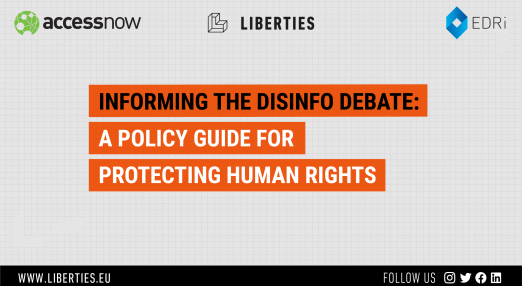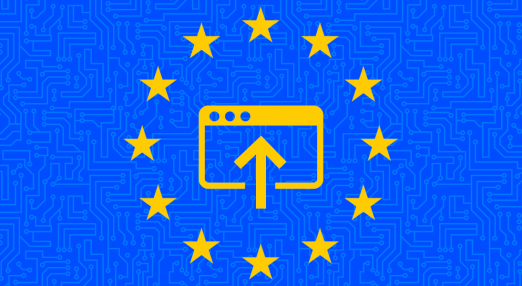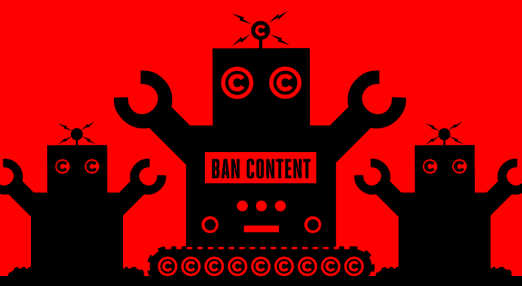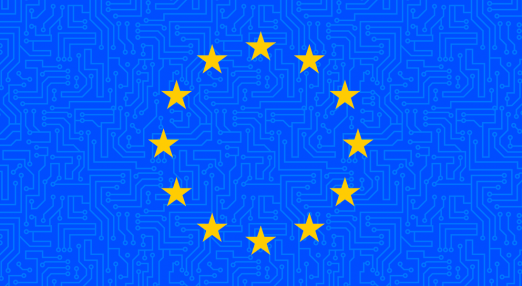Framing the future of the internet
The European Parliament has just voted on the Digital Services Act, crucial for internet regulation.
Filter resources
-

Framing the future of the internet
The European Parliament has just voted on the Digital Services Act, crucial for internet regulation.
Read more
-

Booklet: Informing the disinfo debate
Today, 20 December 2021, EDRi, Access Now and Civil Liberties Union for Europe publish a joint report as a continuation of its 2018 predecessor, Informing the “Disinformation” Debate. The main outcome of this report is a set of policy recommendations addressed to the EU co-legislators focusing on: how to effectively mitigate fundamental rights risks that result from the manipulative methods deployed by large online platforms that exploit people’s vulnerabilities and their sensitive data; and how to combat disinformation in a manner that is fully compliant with fundamental rights standards.
Read more
-

Digital Services Act: EU Parliament’s key committee rejects a filternet but concerns remain
The European Union's Digital Services Act (DSA) is a big deal. It's the most significant reform of Europe’s internet platform legislation in twenty years and the EU Commission has proposed multiple new rules to address the challenges brought by the increased use of services online. EU members of Parliament (MEPs) showed that they listened to civil society voices: Even though the key committee on internal market affairs (IMCO) did not follow the footsteps of the ambitious DSA reports from last year, MEPs took a stance for the protection of fundamental rights.
Read more
-

Has the Parliament effectively wielded the Digital Services Act to challenge platform power? The verdict is, somewhat.
Today, the European Parliament Committee on the Internal Market and Consumer Protection (IMCO) has approved its much-anticipated report on the Digital Services Act (DSA). The DSA affects how intermediaries like Google and Amazon regulate and influence user activity on their platforms, including people's ability to exercise their rights and freedoms online. The DSA also aims at limiting the negative impact of the most powerful online platforms on people and puts limits on how EU Member States can interfere with people’s free expression online.
Read more
-

Transposition of the Copyright Directive in Spain
The transposition of the Copyright Directive in Spain has been done with no Parliament debate. While the political parties could ask for it, they will likely not do so for fear of conflicting with certain famous artists from the copyright lobby, who are lobbying for an extreme position on copyrights.
Read more
-

European Parliament’s plans of a Digital Services Act threaten internet freedoms
The EU's Digital Services Act is a chance to preserve what works and to fix what is broken. EFF and other civil society groups have advocated for new rules that protect fundamental rights online, while formulating a bold vision to address today's most pressing challenges. However, while the initial proposal by the EU Commission got several things right, the EU Parliament is toying with the idea of introducing a new filternet, made in Europe. Some politicians believe that any active platform should potentially be held liable for the communications of its users and they trust that algorithmic filters can do the trick to swiftly remove illegal content
Read more
-

Warning: the EU’s Digital Services Act could repeat TERREG’s mistakes
On 30 September, the Committee of Legal Affairs (JURI) in the European Parliament approved its draft report on a Single Market For Digital Services (Digital Services Act). We had expressed our concerns about negative fundamental rights implications of some proposed measures in the report to the Members of the European Parliament. However, it did not stop the JURI Committee from giving them their green light.
Read more
-

A losing game: moderating online content fuels Big Tech power
While online platforms have a role to play in dealing with systemic risks, holistic - not techno-centric - approaches are needed to guarantee our safety and free expression, argues Claire Fernandez
Read more
-

Digital Dignity Document Pool
Digital technologies can have a profound effect on our societies, but sufficient attention is rarely given to how certain applications differentiate between, target and experiment on communities at the margins. This document pool gathers resources for those that are interested in learning about and contesting the harms to dignity and equality that arise from uses of technology and data.
Read more
-

CJEU in surprise judgment: zero rating is illegal under EU law
Europe’s highest court has put an end to a long-standing legal battle around the EU’s Net Neutrality Regulation. In a landmark judgement published last week, the Court of Justice of the European Union (CJEU) confirmed what EDRi and its members have argued for years: that zero rating is illegal under EU law because it violates the neutrality obligations of internet access providers
Read more
-

The deterrent effect of the Julian Hessenthaler case: Criminal prosecution must not lead to diminished freedom of opinion
At the start of the trial against security adviser Julian Hessenthaler, who played a key role in the making of the so-called Ibiza video, 15 Austrian and international human rights organisations express their concern that his excessive criminal prosecution could – intentionally – have a deterring effect on future sources or whistleblowers and the exercise of freedom of opinion, freedom of the press and freedom of information. Julian Hessenthaler has been in custody since the end of 2020 (at first awaiting extradition, now awaiting trial) because of drug- and document-related charges against him.
Read more
-

Can the EU Digital Services Act contest the power of Big Tech’s algorithms?
A progressive report on the Digital Services Act (DSA) adopted by the Committee on Civil Liberties, Justice and Home Affairs (LIBE) in the European Parliament in July is the first major improvement of the draft law presented by the European Commission in December. MEPs expressed support for default protections from tracking and profiling for the purposes of advertising and recommending or ranking content. Now the ball is in the court of the leading committee on internal market and consumer protection (IMCO), which received 1313 pages of amendments to be voted in November. EDRi's member Panoptykon Foundation explores if the Parliament would succeed in adopting a position that will contest the power of dominant online platforms which shape the digital public sphere in line with their commercial interests, at the expense of individuals and societies.
Read more
